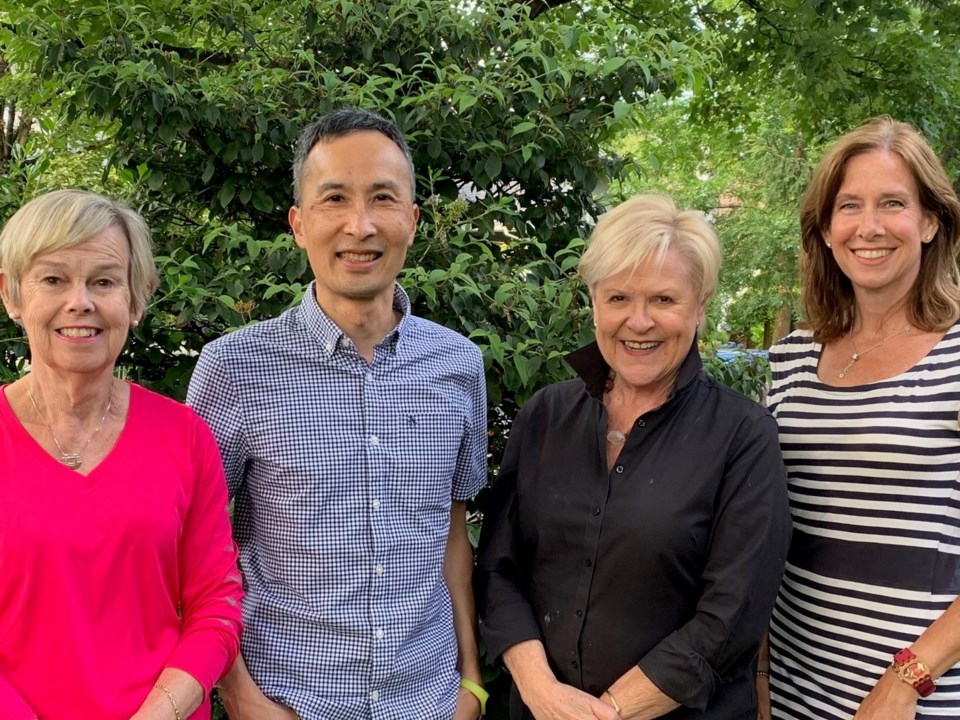Four board members of Vancouver’s Non-Partisan Association political party announced their resignation Friday.
In a July 24 letter to NPA president David Mawhinney and the party’s board of directors, Jane Frost, Corey Sue, Ginny Richards and Marie Rogers listed a litany of concerns and accused the party of becoming irrelevant.
“The current NPA board lacks enthusiasm and energy to add their voices about the important issues under discussion in our community,” the letter said.
“These past four months, while the city has gone through unprecedented upheaval, the NPA board’s voice has been silent and unremarkable. It is beyond frustrating. It is inexcusable. It renders the party irrelevant.”
They described the 2018 election as a watershed moment in the history of the party when it elected five women to council, one to school board and one to park board; Coun. Rebecca Bligh and is now an independent.
Rost, Sue, Richards and Rogers said they hoped to be part of an organization that increased the party’s membership, strengthened communications with current and future members and prepared for the 2022 election.
“We believed that by getting organized, raising a strong voice on social media, helping with potential candidate searches and fundraising, the NPA would be in position to win the next civic election,” the letter said.
“However, we are lone voices on the board. We wanted an inclusive city and a party that embraces the NPA membership.”
Some of the four have been long-time supporters of the NPA and they said it saddened them to see how ineffective the board has become.
“We have tried for the past few months to contribute our efforts to move the party into action, with notable lack of support from our fellow board members,” the letter said.
“Recently, we called for a board meeting, after four months since the previous one, for the most part, board members were unresponsive and disinterested. Or saying it could not be done under the NPA rules, ignoring the B.C. provincial pandemic change to the Â鶹´«Ã½Ó³»Charter.”
They finished their letter by saying, “Accordingly, it is with heavy hearts we tender our resignations as directors from the NPA board, even though we remain aligned to the NPA principles of civic activism and social values of the day.”
Glacier Media left a phone message for Mawhinney that was not returned before this story was posted.
The party’s board was the subject of controversy in December 2019 after Bligh resigned from the NPA to sit as an independent. At the time, Bligh said she had concerns the party had an affiliation with the anti-SOGI movement.
SOGI stands for sexual orientation and gender identity. It’s a term often associated with school curriculum. Its main tenet is inclusion of LGBTQ students.
“I stand for inclusion — no matter what, and there’s no debate around it,” Bligh told Glacier Media at the time.
“It’s a matter of integrity for me and my family values. I’m a queer woman. My own lifestyle, my own identity feels called into question.”
Bligh accused party of of the political spectrum, pointing to the addition of board member Christopher Wilson, a former bureau chief of the far-right Rebel Media founded by Ezra Levant.
Wilson is the same person who called former federal environment minister Catherine McKenna “Climate Barbie,” which Bligh described as a misogynistic comment. Bligh also said the party’s treasurer, Phyllis Tang, has or had an affiliation with the anti-SOGI movement.
Recently, NPA school trustee Fraser Ballantyne came under fire for comments he made during a school board meeting related to a proposal to cancel the police school liaison programs in Â鶹´«Ã½Ó³»schools.
“The Caucasian kids are actually the visible minority,” he said at the June 22 meeting.
“So when we get a sense from the population of our secondary schools and elementary schools, I think it’s really important to hear what they have to say about it and their feelings of the relationships that have been developed over the years. I think a number of trustees will be very surprised at the value of what their connectedness is to this program.”
Ballantyne apologized the next day via Twitter.
“I’m sorry I misspoke at last night’s board meeting,” he wrote.
“My comments were in no way intended to detract from the importance of hearing from Black, Indigenous and other racialized students and communities. I sincerely apologize to those who were offended by my comments regarding the [school liaison] program.”
@Howellings



